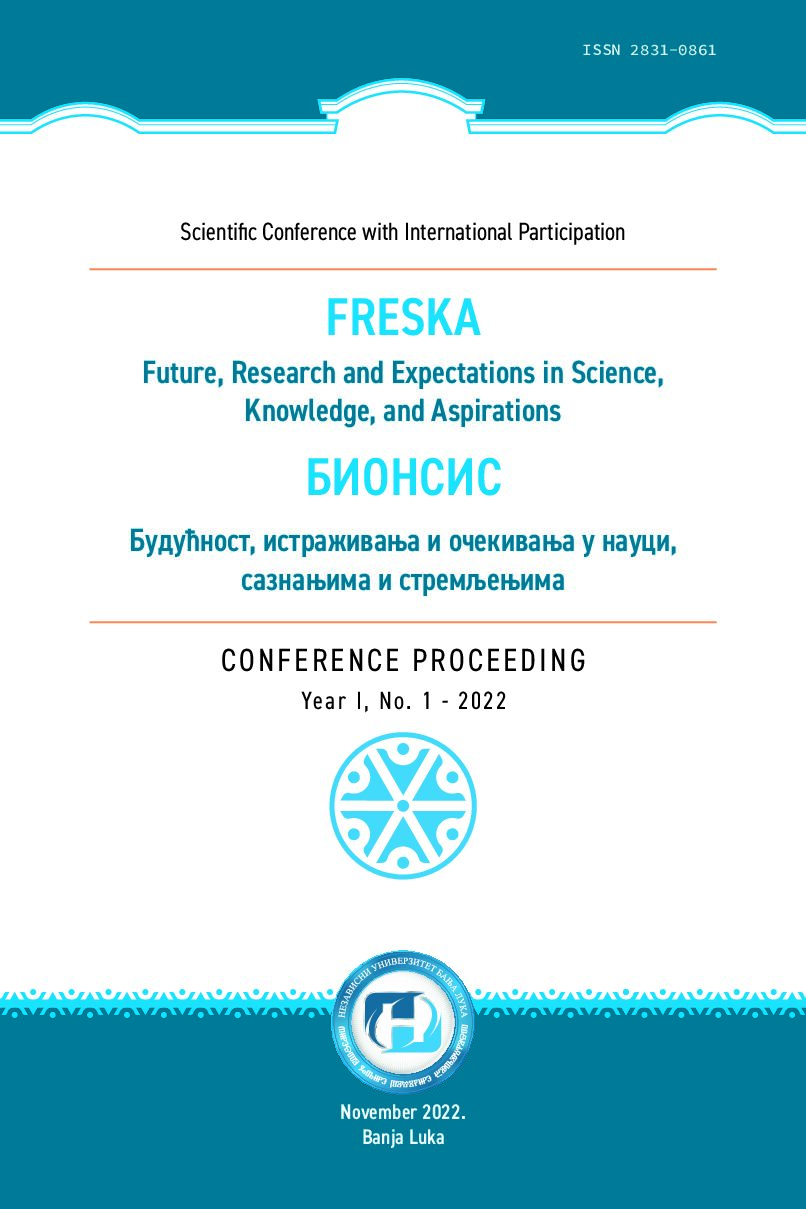TRANSFORMATION PROCESSES IN THE MODERN SYSTEM WORLD ORDER: FEATURES AND PROSPECTS
DOI:
https://doi.org/10.7251/ZNUBL2201031VAbstract
The modern system of the world order is a synthesis of the Yalta–Potsdam system and the onset of the Anglo-Saxon civilization after the victory in the Cold War. The pressure of the West and the resistance to this process determine the trans- formational character of the modern era. The confrontation between the tendency to assert multipolarity and the line oriented towards violent unipolarity needs to be com- prehended. Globalization of the world under the auspices of the Anglo-Saxon center and information maneuvering by it, gave rise to the phenomenon of a given political transformation of the desired territories from centers of power. According to Atlantic political strategists, these territories are defined as nodal in the attack on the inter- ests of a strategic enemy. In the nodal regions of the earth, new orbits of influence, plexuses of forces and interests, springs of enemy coverage are being formed. The de- stabilization of states created in the XX century, given spaces, territories requires not only a constant reaction of the opponent to protect their sovereignty, the necessary points of support for the stability of self-sufficient centers, but elevates the regions of the earth and individual countries to the rank of responsibility, defining them as vital territories. The tension of the international situation is revealed as a constant factor. The reality of the actors’ relationships is becoming mutually exhausting actions, the consequence of which may be economic exhaustion, military-political mistakes, self- destruction, transformation of the weak in order to further absorb them. The actions of the Russian Federation to strengthen statehood taken in 2022 were a revelation for the West. They declared that the vector of offensive tactics against Russia has been put to an end. The Russian Federation has chosen an offensive position to protect national sovereignty and ensure the stability of the country in the surrounding world. The new tactic makes adjustments to the system of traditional perception of political limology, the practice of looking at the system of borders approved by international treaties. Anti-Russian political processes, which have been actively developing in Ukraine for more than thirty years, could not stop at the demarcation line. They influence not only the EU policy, but also the domestic political situation in the country. It is known that borders symbolize the socio-political practice of spatial differentiation. The whole history of Europe is the history of the redistribution of borders. They oc- curred when the polarity in the world is changing. The transformation of the world under the influence of the United States and NATO after the collapse of the socialist bloc is aimed precisely at this.
